The tagline for next year’s much-anticipated CBS All Access Star Trek television series – “New Crews. New Villains. New Heroes. New Worlds.” – applies perfectly to STAR TREK BEYOND, the latest in a thirty-seven-year run of big screen Trek adventures, which arrives in theaters on July 22.
Directed by self-confessed “Star Trek kid” Justin Lin, who takes on his first science fiction motion picture after building Universal’s Fast and Furious franchise to staggering success, BEYOND is an extremely satisfying deep-dive into five decades of Star Trek lore.
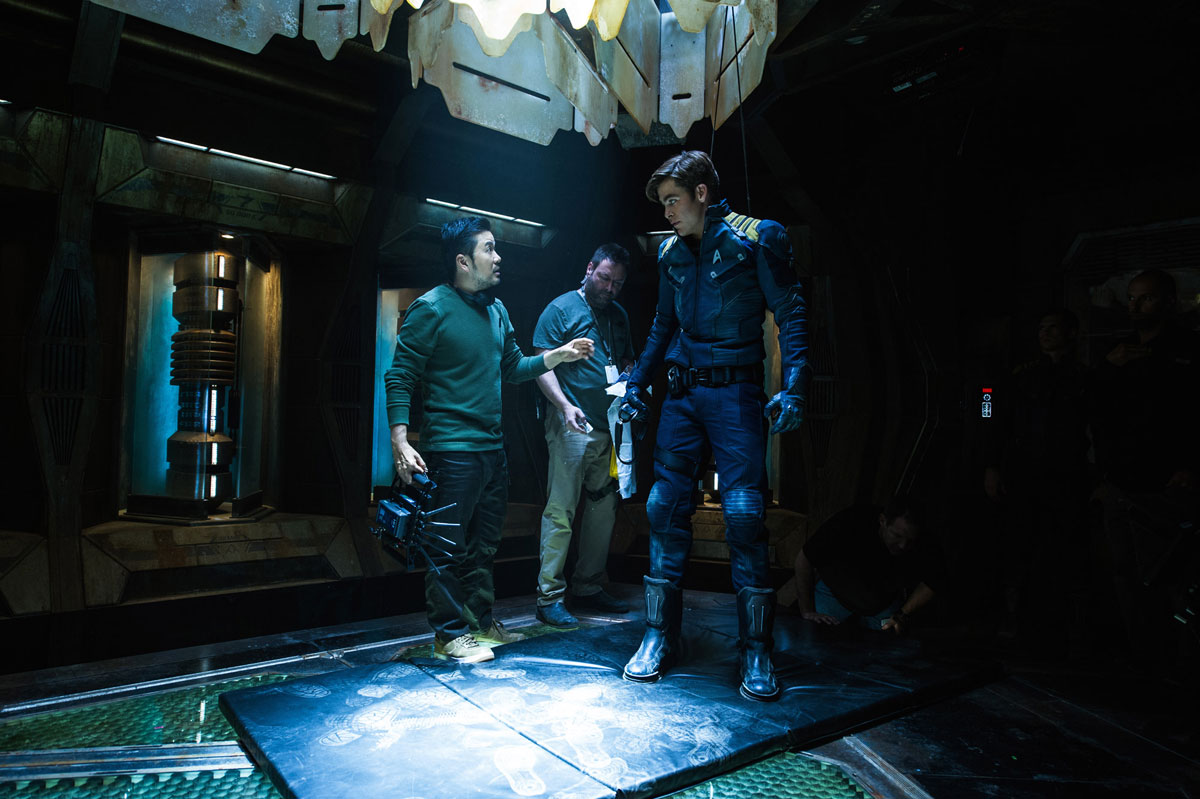
The film quite literally soars beyond expectations, giving fans a taste of modern-day, adrenaline-fueled, summertime fun mixed with the deep layers associated with sci-fi’s most cerebral franchise.
The pillars that have supported Star Trek’s longevity across five decades are on full display in STAR TREK BEYOND – from complex character motivations and reveals to strong continuity, the exploration and discovery at the core of the franchise’s best episodes and films is featured throughout the two-hour feature.
New Crews
Well, maybe not a new crew, exactly, but for the first time in the Kelvin Timeline, we find James T. Kirk (Chris Pine) and the rest of the Enterprise officers entrenched in their five-year mission of exploration.
Beginning nine hundred and sixty-six days into their mission (a cute reference to the September ’66 television debut of the Original Series), STAR TREK BEYOND is equal parts exciting and routine for the original seven – and in just a few short scenes, we get to see a slice of Starfleet life portrayed with a depth never before showcased in a Star Trek motion picture.
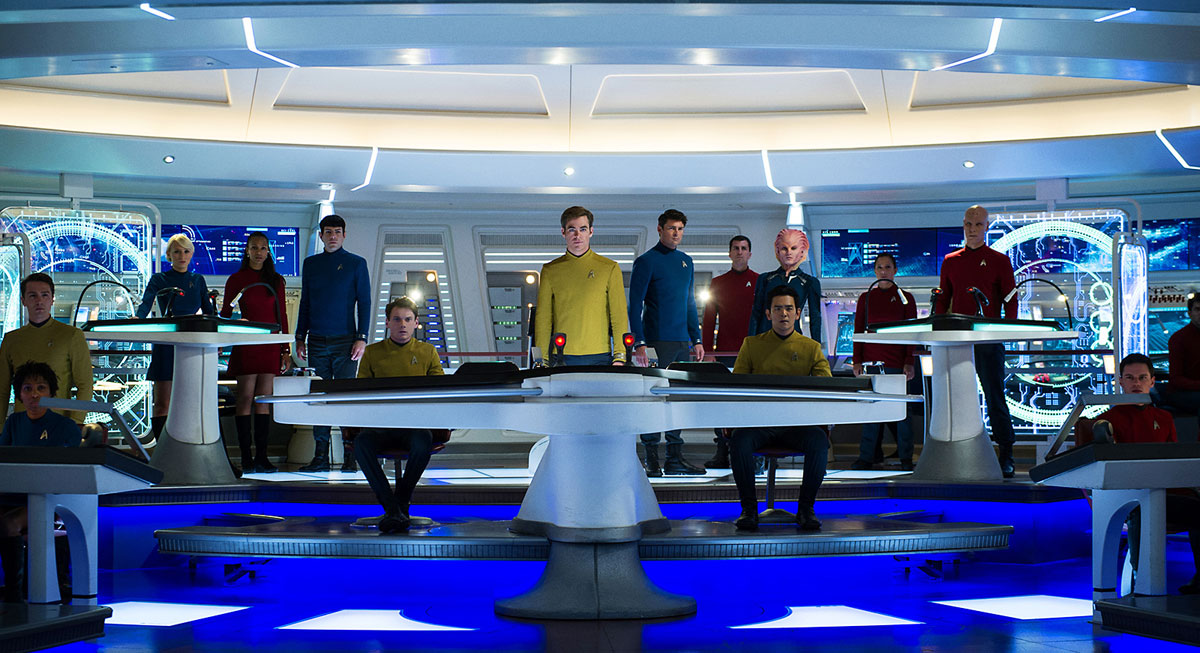
Lin is well known for working with ensembles, and he exceeds all expectations in BEYOND by giving each Original Series crew member a critical role to play. Along with screenwriters Simon Pegg (pulling double-duty, also appearing as Scotty) and Doug Jung, the trio has placed our heroes in interesting combinations to not only raise the stakes, but dig deeper into their psyche.
We see Kirk mentoring Chekov (the late Anton Yelchin) extensively, hearkening back to original series episodes like “The Gamesters of Triskelion” and “The Apple,” and the film teams up Sulu (John Cho) and Uhura (Zoe Saldana) to face adversity together in dark, revealing ways.
In more than mere homage to the classic McCoy-Spock shenanigans from the Original Series, the paring of Bones (Karl Urban) and Spock (Zachary Quinto) – verbally sparring with each other in one film-stealing scene after another – is the heart and soul of BEYOND, providing a backbone for all of Kirk and Spock’s personal motivation.
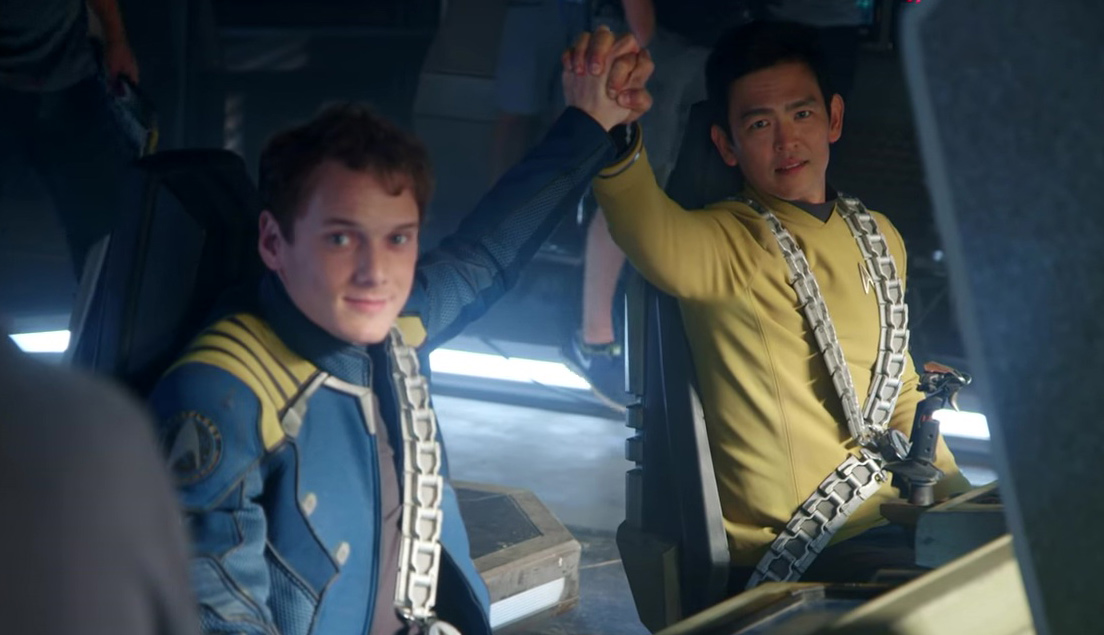
The tragic loss of Anton Yelchin, who was sadly killed in June, is felt whenever he appears on screen interacting with his bridge mates – but thankfully, that twinge of sadness is often overshadowed by a role that ultimately is a celebration of the man and his craft.
While the entire ensemble continues to be a strength in these new Star Trek films, it is Pine who stands out in a way he hasn’t previously. Captain Kirk is in full hero mode throughout the movie: leading, cajoling, inspiring. His emotions run the gamut, but his internal crisis never approaches unsympathetic self-loathing.
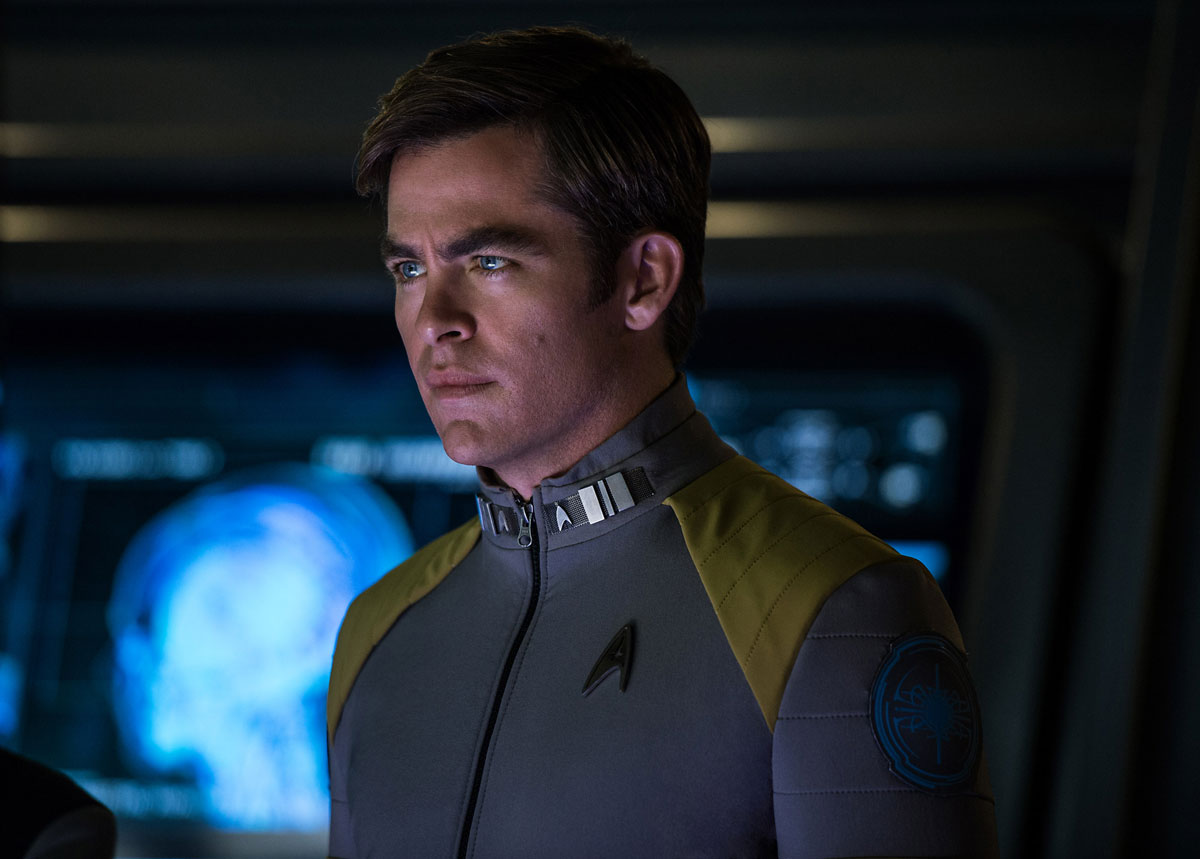
Pine can thank Pegg and Jung for that – they have written a film that matches Lin’s frenetic direction and pacing with humor, action and reverence. While including poignant callbacks to “The Cage” and “The Wrath of Khan,” Pegg and Jung have enabled Pine, Quinto, and Urban to easily slip back into their original trinity roles by scrutinizing their core personality traits – with both heart and humor.
Callbacks to Trek’s past are layered throughout the prose and are too numerous to count – everything from names of obscure TOS redshirts to one particularly cheeky reference to the original crew’s adventures on Pollux IV – and if you’re a fan of the four-season Star Trek: Enterprise prequel series, you’ll definitely be pleased with the ingenious way that show has been infused throughout the film.
New Villains, New Heroes
Without giving too much away, it’s easy for us to tell you that Krall, played by multiple-Emmy Award nominee Idris Elba, is a villain for the ages.
Explaining the complexity of Krall’s backstory has been described by both Pegg and Jung as their biggest challenge in bringing this story to the screen. They are mostly successful, keeping heavy, exposition-laden dialogue to a minimum – just enough for audiences to connect the pieces – but understanding the full scope of just what he’s up to will likely take a second viewing for those not deeply versed in Trek lore… or some online research when you leave the theater.
Long-time fans of Star Trek, however, will be catching their breath once his mysterious motivations come into satisfying focus.
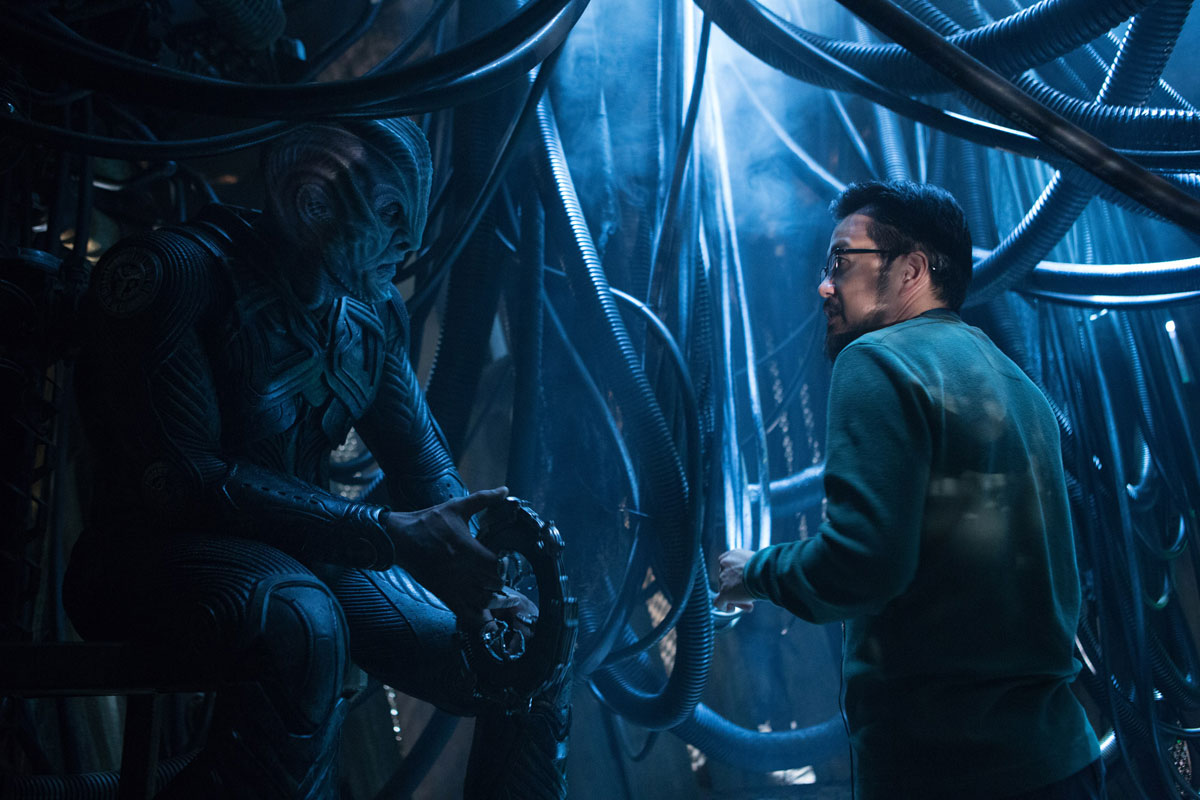
Elba’s performance is emphatic and unrelenting, and is matched only by his amazing makeup and creature design from Joel Harlow, who has created a number of remarkable aliens and makeups throughout the film. As part of the fifty-year celebration of Trek, the producers tasked themselves with creating 50 different alien makeups for the film, and many of them are showcased prominently.
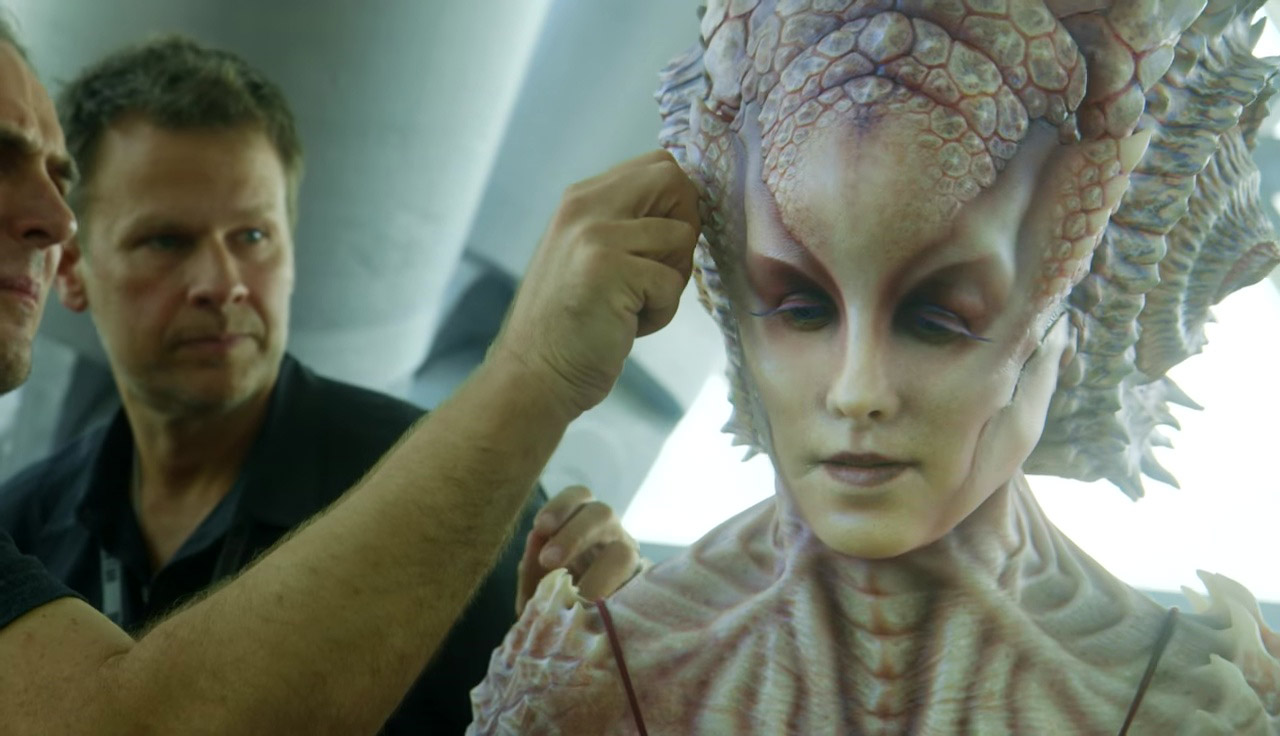
At the top of that list are the sleek, cat-like black-and-white lines of Jaylah (Sofia Boutella), a mysterious alien who matches wits with Scotty and the rest of the crew in their battle with Krall.
If you’ve been following the film’s promotional path the last month and were worried that your expectations for Jaylah might be too high, you can rest easy: Jaylah is a character with purpose and very real emotional depth. None of her screen time is wasted as she seamlessly integrates herself into the crew dynamic.

In fact, so successful is her presence, that if and when development starts on a fourth film in the Kelvin Timeline, you’d be hard-pressed not to include her in some capacity moving forward.
New Worlds
The visual effects in STAR TREK BEYOND quite simply set a new standard for Star Trek films. Double Negative, the effects house responsible for the award-winning work seen in Interstellar and Ex Machina, has created a new world in the Yorktown space station that rivals anything ever seen on screen.
Its expansive environment is well thought out and practical – clearly designed to take advantage of every bit of living space inside an artificial gravity sphere in the middle of space. The concept is grand and the visuals are a match. It’s an amazing achievement.
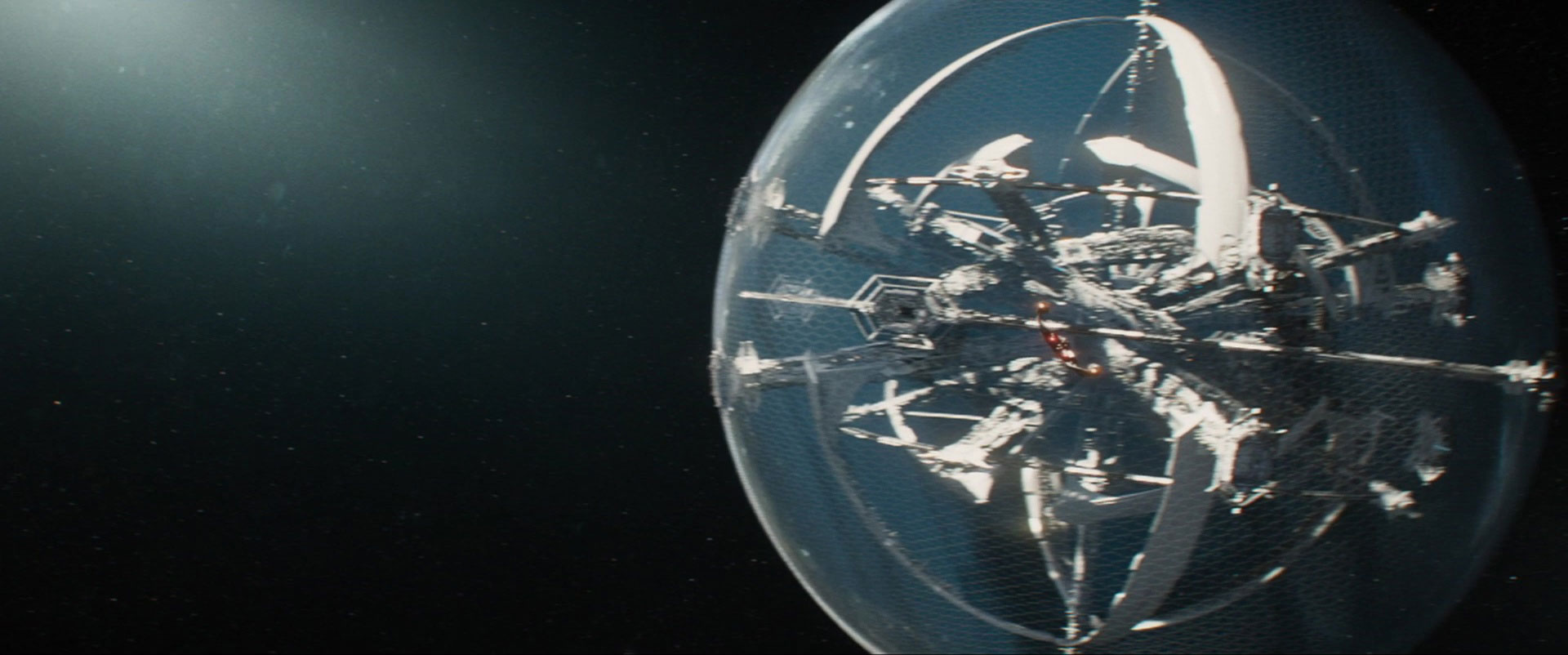
Of course, the Yorktown station is more than just a shiny, pretty object to look at. The filmmakers have superbly made it feel like home, making it an essential catalyst to much of the film’s plot development, including the much-discussed personal revolutions for Cho’s Sulu – where the station is home to his family.
Care and detail have also been given to the Enterprise makeover, with some sleeker lines in the nacelles and a clever new warp bubble effect we glimpsed in the trailers. The effect is mesmerizing and sets a new standard when compared to the oft-repeated “stretched lights, flashing into the distance” effect – not that there’s anything wrong with that classic effect!
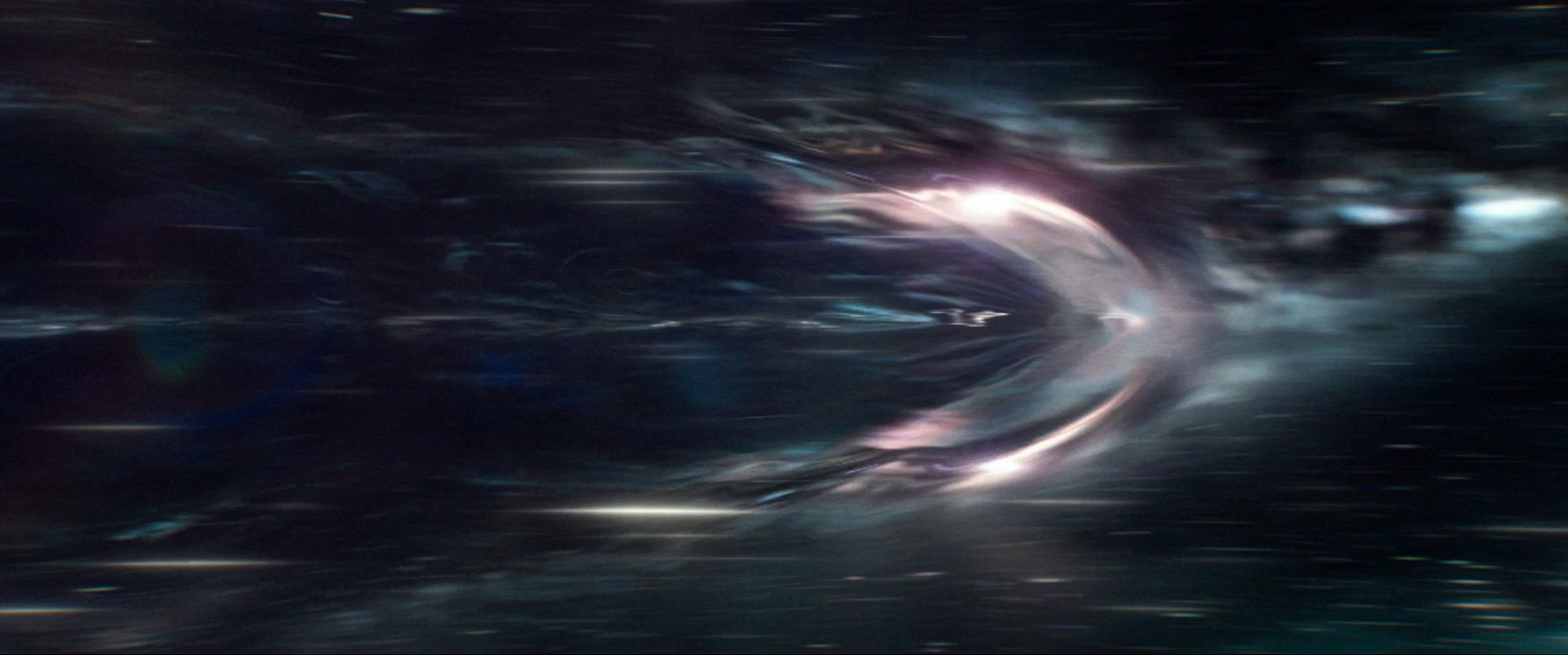
As he has done in the two previous incarnations of the Kelvin Timeline, master composer Michael Giacchino has infused the film with both the familiar and the foreign, creating a score that opens with a tonal nod to Alexander Courage’s original Star Trek theme, and only gets bigger and more majestic from there.
While his work on the previous films certainly hasn’t been overlooked, this third film score will likely be the one that garners the most attention (and is available for preorder now).
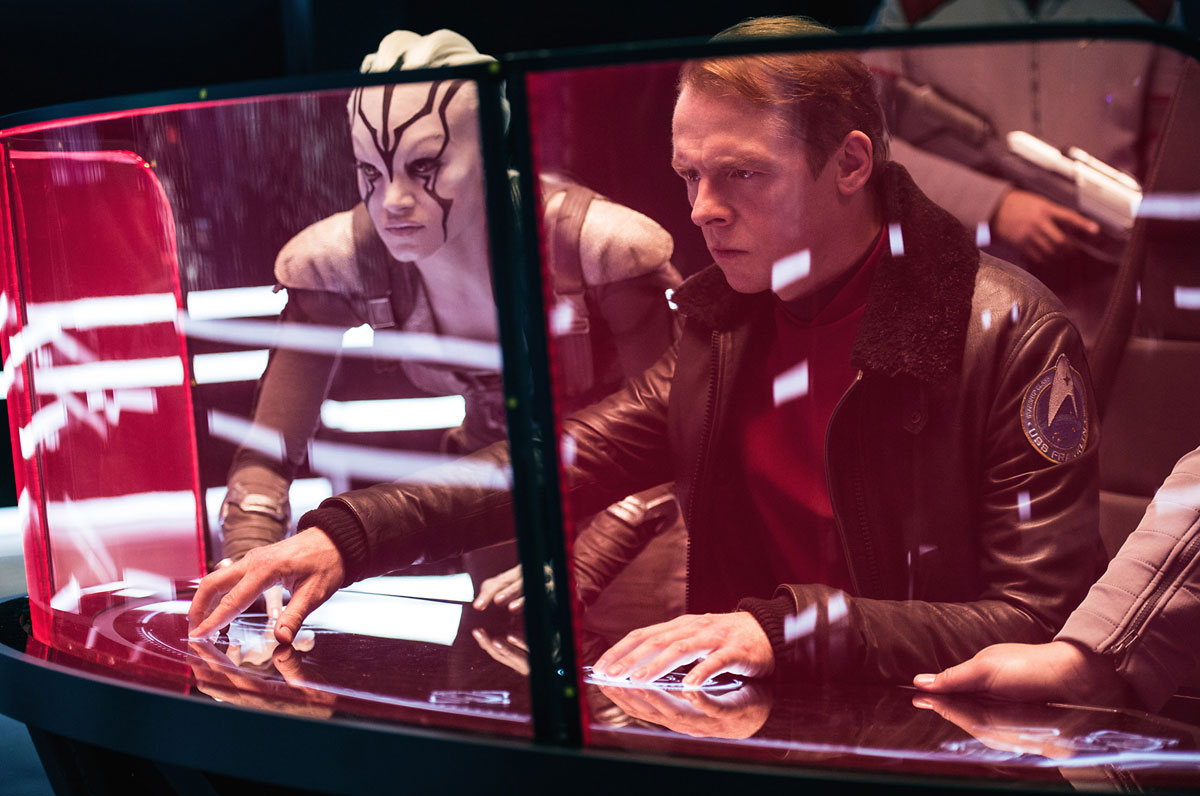
All that being said, Lin’s take on the Trek universe doesn’t breezily move past the dark tones that permeated STAR TREK INTO DARKNESS – as Krall has more than a few dark moments to match anything seen previously in Trek – but there is certainly a different feel to this incarnation.
Replacing the ubiquitous JJ Abrams’ lens flares are a number of new visual flourishes, including several uses of twisty, long-range camera movements layered between fast-paced cuts and quick camera pans that will rocket viewers around at warp speed.
In addition, Lin’s inclusion of some modern story-telling beats may not be to everyone’s liking – including the much-discussed use of a motorcycle in a pivotal action sequence – but the director’s style clearly jumps off the screen in critical ways… in both sound and fury.

At its heart, though, STAR TREK BEYOND is about the core relationships that have bound the crew of the Enterprise in tales spanning half a century.
The film integrates and honors the passing of Leonard Nimoy in a number of emotional scenes, while never ignoring the critical backstory laid out in the previous two films surrounding the destruction of Vulcan.
Nimoy’s loss is felt throughout the film. His absence resonates emotionally and powerfully, but is also celebrated in a tear-inducing scene that is more than worthy of this franchise benchmark.
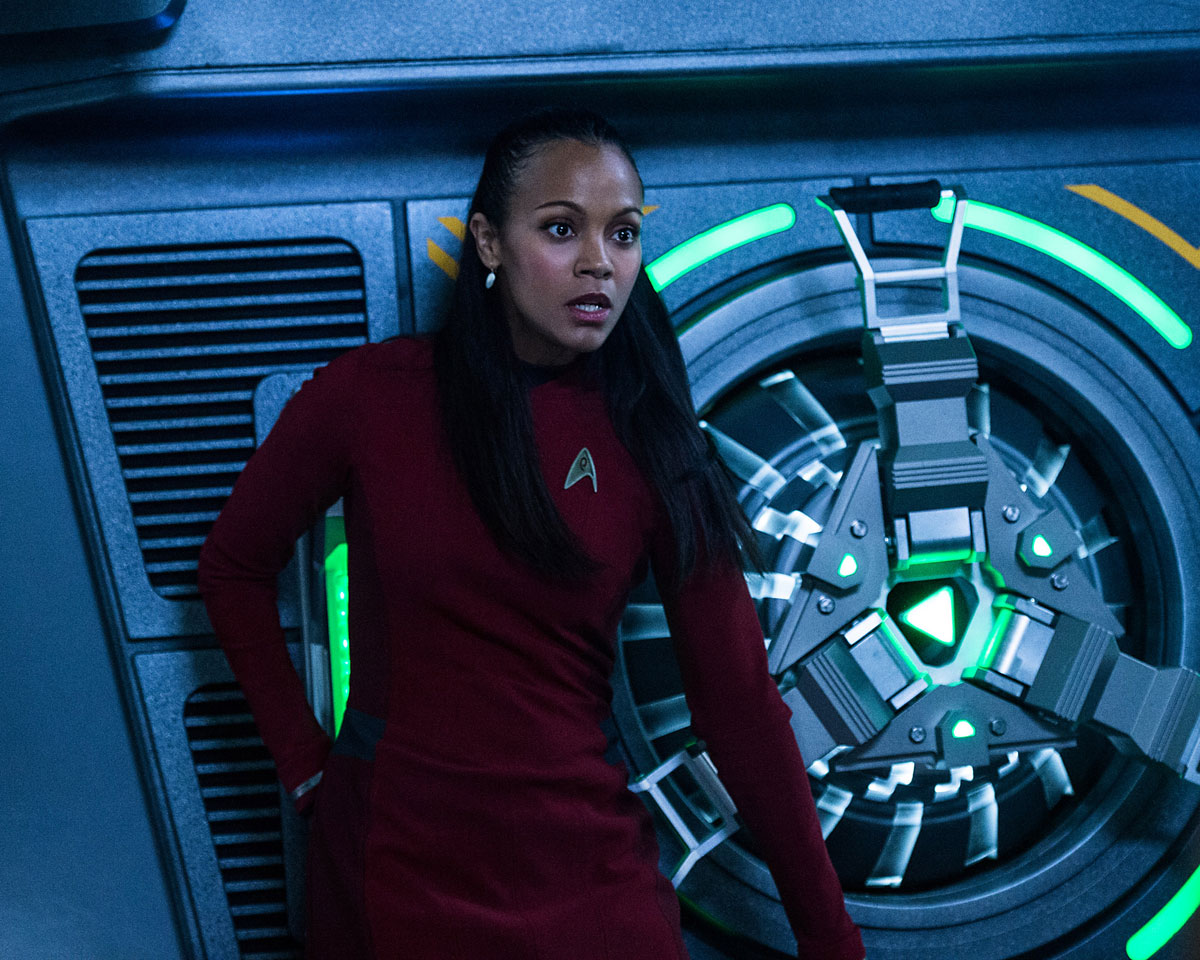
In the simplest terms, the humor, action and pacing of this film will satisfy both summer movie aficionados and hardcore Trek purists alike. The film is epic and balanced, kinetic and thoughtful, and connects Trek across 50 years of continuity in ways that could never have been expected.
It’s an exceptionally worthy mic drop for Star Trek’s golden anniversary.
